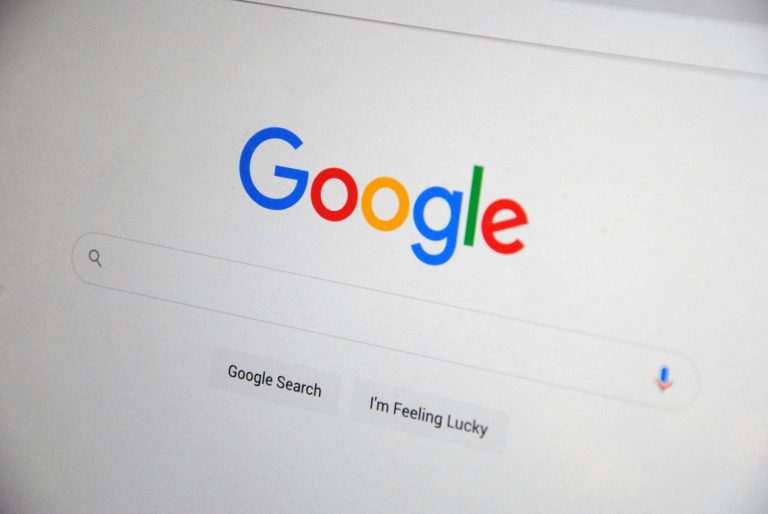Back in the mists of time Google submitted a patent on their Search Engine algorithm and within that lies one the secrets of their success as well as one of the biggest thorns in their side. Google’s algorithm specifically looks for links to your page or site from other pages or sites on the internet and interprets them as votes for your page or site. The more votes the better your page or site is and the higher you are likely to rank within the search results. Sounds good right?
The problem with this is that once people figured out that the ranking positions could be manipulated by simply increasing the number of links that pointed to a site, Pandora’s Box was opened. Today if you Google ‘Link Building Companies’ you get 663,000,000 results and whilst there are some really good guys within there you will also find millions of ‘get rich quick’, ‘immediately boost your backlinks’ and ‘no penalty backlink boost’ type sites that will take your money in exchange for some dubious link building practices.
For at least the past five years Google has been desperately trying to put the lid back on the box and the Penguin, Panda and other updates which have been tracked since 2000 have over recent years been focused on one thing; weeding out deliberately manipulative linking practice.
Google is quite rightly focused on the end user experience and when you search for anything on their platform they are going to try and return for you a set of the most relevant pages and advertisements that it can. What it doesn’t need is for the pages within that search return to be there through artificial means as if you click on a page which happens to be top and it takes you somewhere you didn’t want to go then the entire process has been a failure. And Google knows that repeated failures like this will drive people to try other methods and browsers, which is precisely how they gained so much market share in the first place, by being the best set of relevant results in the known universe.
The process by which Google undertakes these algorithm updates and changes has been covered in some detail elsewhere but essentially it involves manual as well as electronic checking to try and improve the user experience. And many agree that overall the process has to be a good thing as it cleans up the internet and removes a lot of the poorer quality sites and pages.
So far so good. We understand what’s going on and we agree with Google to this point.
The problem lies in what Google does when it believes a site has breached its linking guidelines and it applies a penalty, as this process is far from perfect and in many cases it becomes Kafkaesque.
The first thing you will see if you are hit with a Google penalty is that your site will drop immediately in the rankings, in many cases out of the top 100 or in extreme cases it can be completely de indexed. So from being number one and getting a lot of visitors to nowhere and nothing is a sharp change for any business. Now if you are just a spammy one page site with dozens of adverts on your home page and the only reason you exist is to gain click revenue from affiliate schemes, sorry, but you should never have been there in the first place. If however you are a genuine legitimate business with a good website, offline as well as online presence and many years of trading behind you, like Interflora recently, getting a penalty like this can be crippling.
If you have been hit with a penalty it may be that you will see a warning message in your Webmaster Tools interface, though not always, and if you do see a message there it most definitely won’t tell you what specifically you have done wrong. It may point you to their well-publicised guidelines of what not to do but it won’t tell you exactly which links causing you problems.
Trying therefore to get out of this mess can be like trying to herd cats in fog. You have to go through every single link that points to your site and establish whether it is genuine, whether it breaches any of Google’s guidelines, even in spirit, and then find a way of removing it. You are expected to know which are good and bad links. You are expected to be able to remove the bad ones. You are responsible for how many people like your site and link to it. For many small businesses this is a nigh on impossible task and firms have been known to abandon their site and simply build a new one on a new domain name and try to start all over again.
This is the problem. Google knows what it can see about your site and the links to your site that it doesn’t like, but it doesn’t tell you. They expect you to know, or at least to find out. They expect you to find out and fix it.
And that is why we have a problem with Google as it treats any site that falls foul of its rules as guilty and acts as judge jury and executioner all in one go. Removing ‘habeas corpus’ and the presumption of innocence lays Google open to accusations of being an autocracy that abuses a monopoly position.
But there is a simpler and fairer way which eventually means that we are all winners and that is to allow market forces to dictate link building practice. What does this mean in practice? Well quite simply it means carry on doing what they are doing now but crucially do not apply ranking penalties to affected sites.
Let’s give you an example. Site A and Site B both sell industrial widgets but Site A has bought 10,000 backlinks from Ukraine whilst Site B has links from suppliers, their local Chamber of Commerce, Facebook, Twitter and from their own blog. Clearly Site B deserves to appear above Site A as Site A has breached Google’s guidelines but whether we like it or not, the number of links still makes a huge difference to SERPS so Site A is likely to be top. Now under the current arrangements, when Google finds out about this they are likely to drop Site A completely leaving Site B free at the top of the rankings to get all the business. Sounds fair you may think, but what if Site A employed a lazy SEO who bought these links because they thought it was the quickest/easiest/simplest thing to do to gain position? Granted they are culpable but in common with most businesses they are unlikely to be able to differentiate a good from a bad link. The transgression therefore was inadvertent and whilst the old argument is ‘ignorance is no defence’ it still means Site A has a huge job on their hands to clean up the mess, if they are even able to do so.
In many cases though there are sites out there that have thousands of links which may be ‘questionable’ when benchmarked against Google’s guidelines. Moreover Google’s guidelines today are not the same as they were last year, nor as they will be in six months’ time as more examples of ‘bad’ practice are bound to be added. So whilst what you do today may be acceptable, come tomorrow you may find yourself with a penalty. And at the back of all this the only ones who know whether these links are acceptable or not are Google.
So why not take a much simpler approach and instead of penalising sites for bad link building practice, why not reward sites for good link building practice? Carrot instead of stick?
Practically this would be very easy to do as Google already knows which are good and which are bad, so to determine the rankings why not just count the good ones? As every SEO will know backlink analysis is the cornerstone of a good link building programme so over time the sites that rank top will be analysed by all the competition and if only the good links are there and counting towards their position eventually people will stop spending money buying the volumes of rubbish links that litter the web currently.
Perhaps we’re being a little naive here but surely this approach would encourage good link building practices and by default the poor practice would reduce to almost zero? Link building firms who thrive on easy money for cheap link networks today would be forced to either do the job properly or go out of business, but it’s their choice. Market forces would drive the behavioural change that Google is looking for and deliver a cleaner, better user experience when searching online. And firms who have been stung by the ‘get rich quick’ merchants that thrive in this digital environment won’t suffer the unjust penalties which are applied today.
Whilst Google persists in its ‘judge, jury and executioner’ approach it is likely to gain few friends as along with the truly bad, the algorithm changes also penalises the misguided and in some cases the innocent. Moving to a reward based system is fairer on all as it restores the presumption of innocence and if you spend good money buying in thousands of dodgy links, so what? It won’t move you an inch in the rankings and over time firms will realise that this practice is pointless.
Until Google do something to change the current system we will continue to rail against it as whilst the intentions may be good, the act itself is proving to be poisonous for many good firms as well as the bad. Perhaps the time has come to treat us as grownups rather than errant children and provide an environment where good can thrive over evil?





